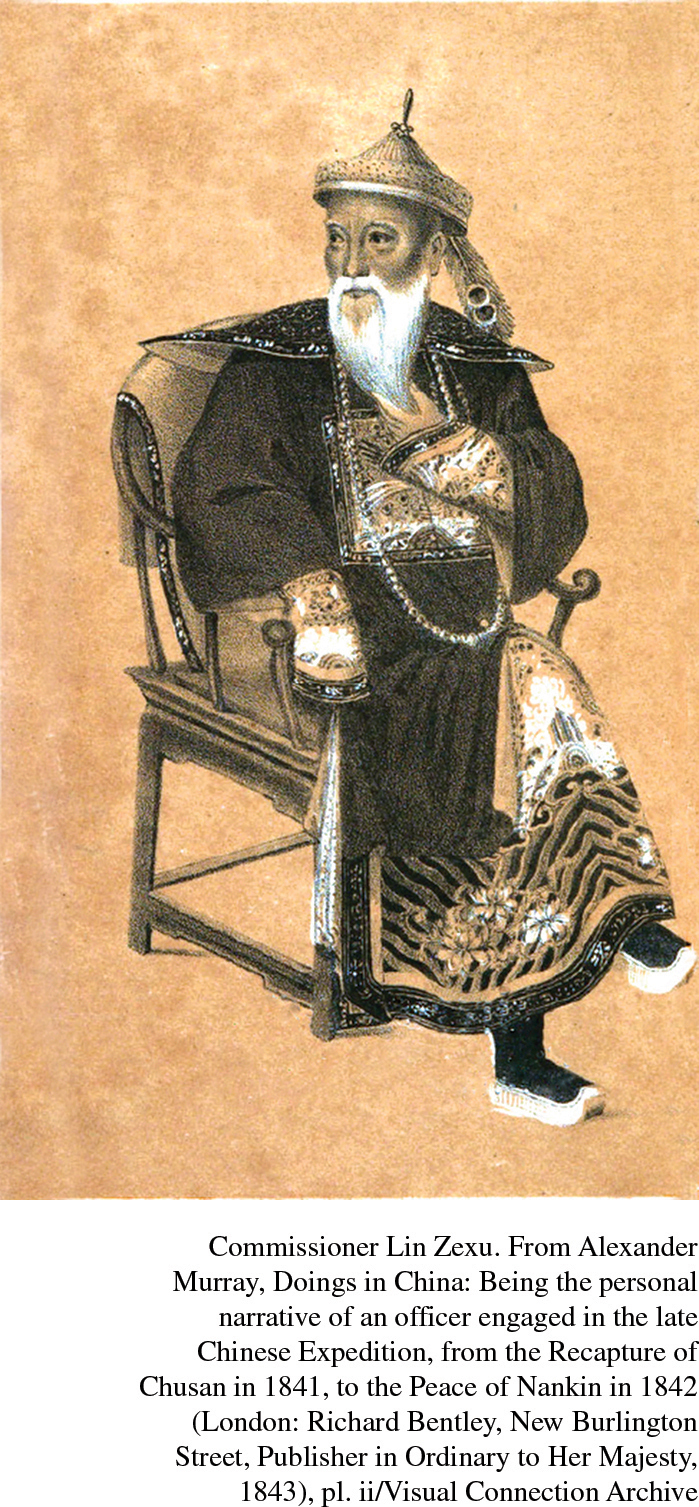ZOOMING IN: Lin Zexu: Confronting the Opium Trade

When the Chinese emperor decided in 1838 on firm measures to suppress the opium trade, he selected Lin Zexu to enforce that policy.7 Born in 1785, Lin was the son of a rather poor but scholarly father, who had never achieved an official position. Lin, however, excelled academically, passing the highest-
And so in December of 1838, after some nineteen personal audiences with the emperor, Lin found himself in Canton, the center of the opium trade and the only Chinese city legally open to foreign merchants. He was facing the greatest challenge of his professional life. Undertaken with the best of intentions, his actions propelled the country into a century of humiliating subservience to an industrializing Europe and forced growing numbers of Chinese to question their vaunted civilization.
In established Confucian fashion, Lin undertook his enormous task with a combination of moral appeals, reasoned argument, political pressure, and coercion, while hoping to avoid outright armed conflict. It was an approach that focused on both the demand and supply sides of the problem. In dealing with Chinese opium users, Lin emphasized the health hazards of the drug and demanded that people turn in their supplies of opium and the pipes used to smoke it. By mid-
Lin applied a similar mix of methods to the foreign suppliers of opium. A moralistic appeal to Queen Victoria argued that the articles the English imported from China—
Disposing of the drug was an enormous task. Workers, stripped and searched daily to prevent looting, dug three huge trenches into which they placed the opium mixed with water, salt, and lime and then flushed the concoction into the sea. Lin offered a sacrifice to the Sea Spirit, apologizing for introducing this poison into its domain and “advising the Spirit to tell the creatures of the water to move away for a time.” He informed the emperor that throngs of local people flocked to witness the destruction of the opium. And foreigners too came to observe the spectacle. Lin reported, “[The foreigners] do not dare to show any disrespect, and indeed I should judge from their attitudes that they have the decency to feel heartily ashamed.”
Had Lin been correct in his appraisal, history would have taken a very different turn. But neither Lin nor his superiors anticipated the response that these actions provoked from the British government. They were also largely unaware of European industrial and military advances, which had decisively shifted the balance of power between China and the West. Arriving in 1840, a British military expedition quickly demonstrated its superiority and initiated the devastating Opium War that marked Lin’s policies in Canton as a failure.
As a punishment for his unsatisfactory performance, the emperor sent Lin to a remote post in western China. Although his career rebounded somewhat after 1845, he died in 1850 while on the way to an appointment aimed at suppressing the Taiping rebellion. While his reputation suffered in the nineteenth century, it recovered in the twentieth as an intensely nationalist China recalled his principled stand against Western imperialism.
Questions: How might Lin Zexu have handled his task differently or more successfully? Or had he been given an impossible mission?